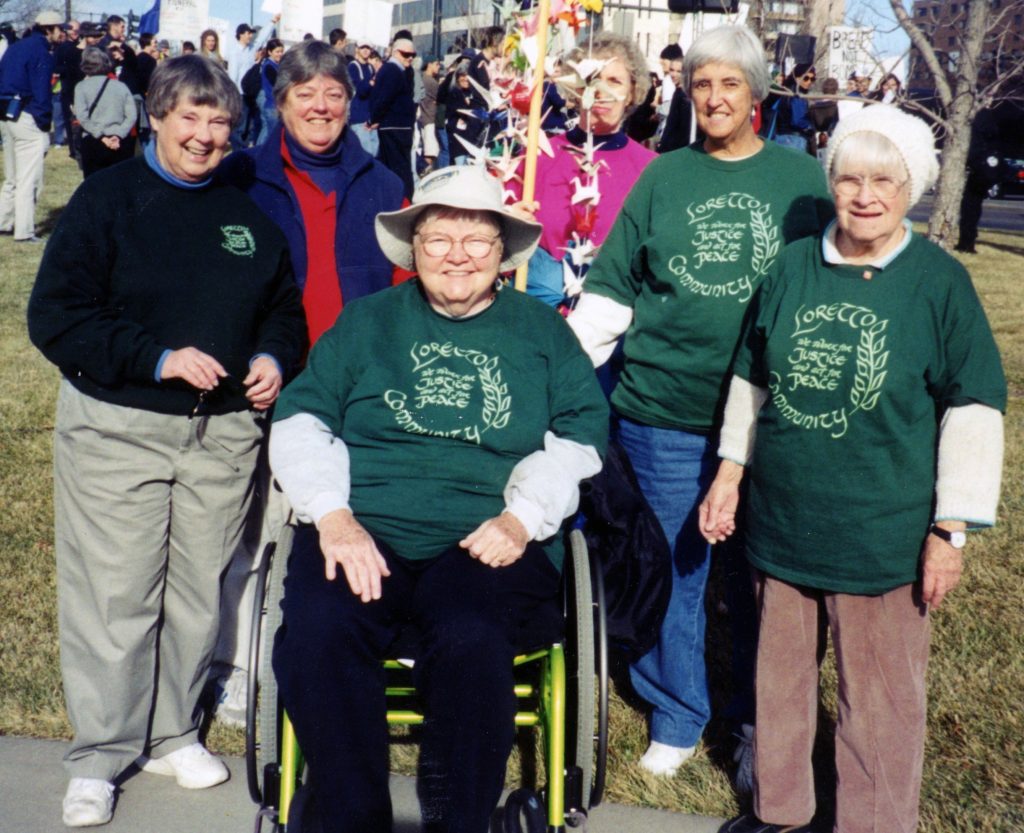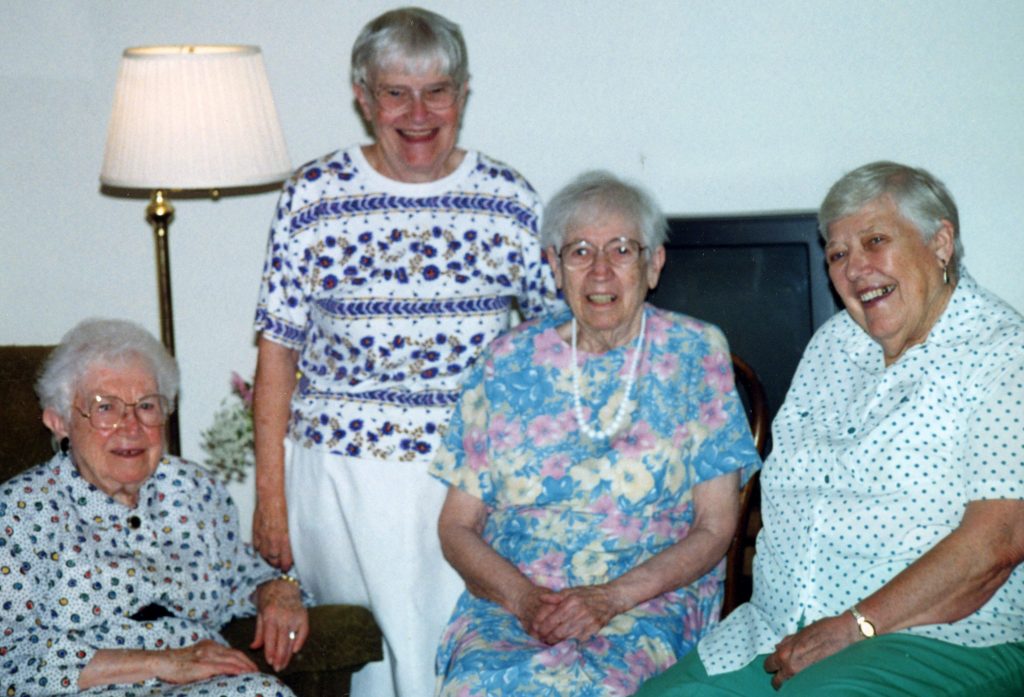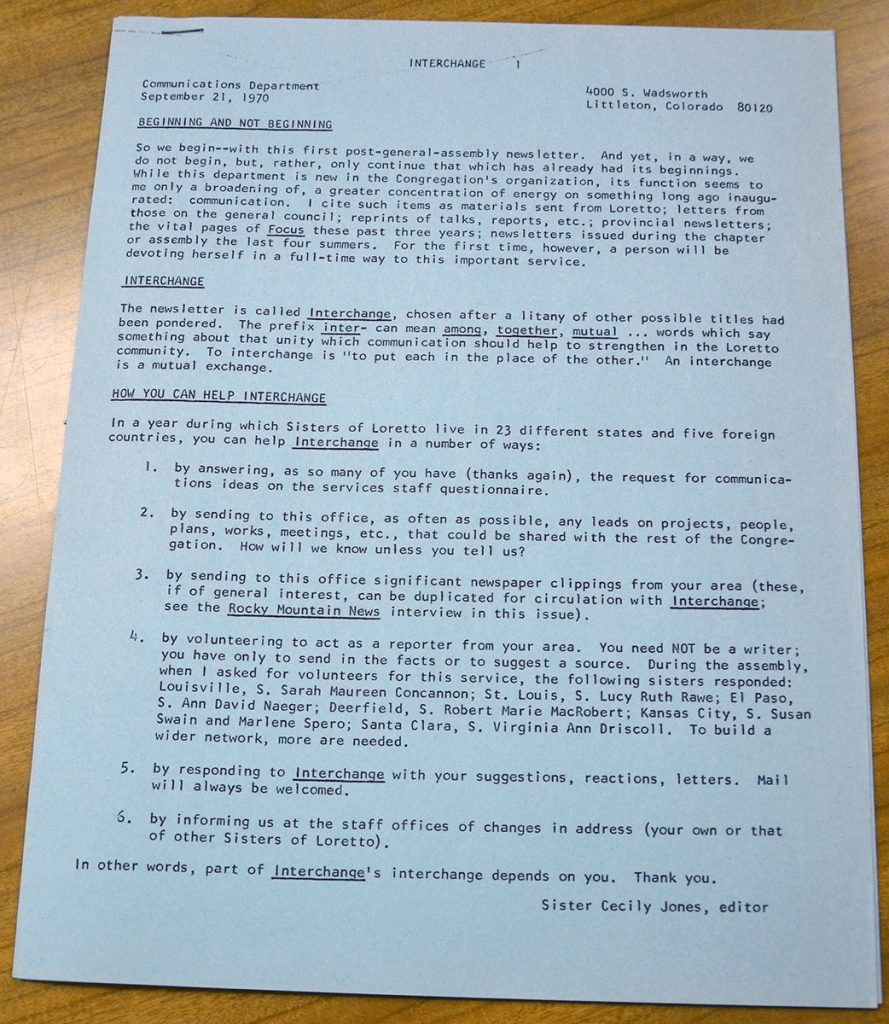Remembering Cecily: A Reflection
Posted on September 1, 2017, by Martha Alderson CoL

Feb. 28, 1924 – July 18, 2017
Cecily (Peggy mostly, to me) was so many qualities I admired and such support to me that it would take much too much time and space to elaborate. Nevertheless, I find there are two special qualities I want to remind us of.
First, Cecily was ever the political activist, always working for justice. She called it “peace work” (and no one thought she meant quilting, although she admired quilting). It was frustrating for her when she was no longer able to join in marches and visits to officials. She kept up her activism through writing letters, on her own impetus and on request, and as we all know, through her Sunday petitions.
Second, Cecily was a writer, especially a poet. After Loretto published a book of her poems, Mostly for Promise, she continued to write and felt that the later poems were better. I think that was because she was even more intense in her feelings for the helpless and the somehow disadvantaged. She cried as she read or watched the news and as she penned her poetic response.
Here is a quote from an email to Mary Ellen McElroy who had asked Peggy to lead a group using poetry for the Peace Workshop three years ago. She refers to her recent work:
“I write about the crumbling clothing factory in Bangladesh; the plight of ‘mule ladies,’ human cargo-carriers in Morocco; the cratered Syrian cities of Aleppo and Homs; asking who will light the candles in all of them, and asking God if God feels ‘at home’ in Baghdad and Juarez, and so on. What I write comes from a need to identify with those suffering ‘farther neighbors.’
“Certainly I need to admit that I do not find a search for inner peace a prominent goal of mine. While its possession is always ‘a work in progress,’ nevertheless at the age of 90, I find myself much more geared toward the compassion of reaching across the world to embrace those who are undergoing such pain. … I also admit that my decades of activism (which I never felt was separate from a spirituality that for me was always centered on the Gospel) have shaped my life. So, you see, I still pin a No War button on my shirt each day.”

It is trite but accurate to say that Cecily wrote from the heart. And her heart was enormous. Also her mind! She learned the names of all the visitors, especially the Loretto Volunteers, and she wrote personal notes to her “pen pals” at St. Mary’s. She had an extraordinary memory for details of people, events and dates.
My own favorite of Peggy’s poems is one she never chose to read but could count on me to ask for, and sometimes when I wasn’t in attendance, someone else would ask for me. It is “For Silver.” One reason she didn’t choose it was that she didn’t want to seem “special” for having spent a night or so in jail for a peace demonstration, thinking others might think she was bragging. But it is a lovely poem, bringing the personality of a “born leader,” and laying out the lines evocatively. After the line describing Silver (a nickname) as “part Amazon, part sprite,” she brings a punch with the next clause: ”you transcended tedium/of what has been your almost only world.” And she ends the poem with a description of a later visit back at the jail to see Silver:
I heard my phoning voice rise nearly to a shout
as if some urgent volume could arouse
your dream of rehab and parole,
as if a louder tone might break
the two-inch pane,
and a wild belief of yours and mine
would handclasp us together
in the shattered showcase booth
where we’d begin a dance
for all the vulnerable
and those who dare to hope.
Cecily told me one time that someone asked her why she didn’t write “religious” poetry. She was stunned that anyone would not see that her every line and every act was as religious as any of us would ever be.



